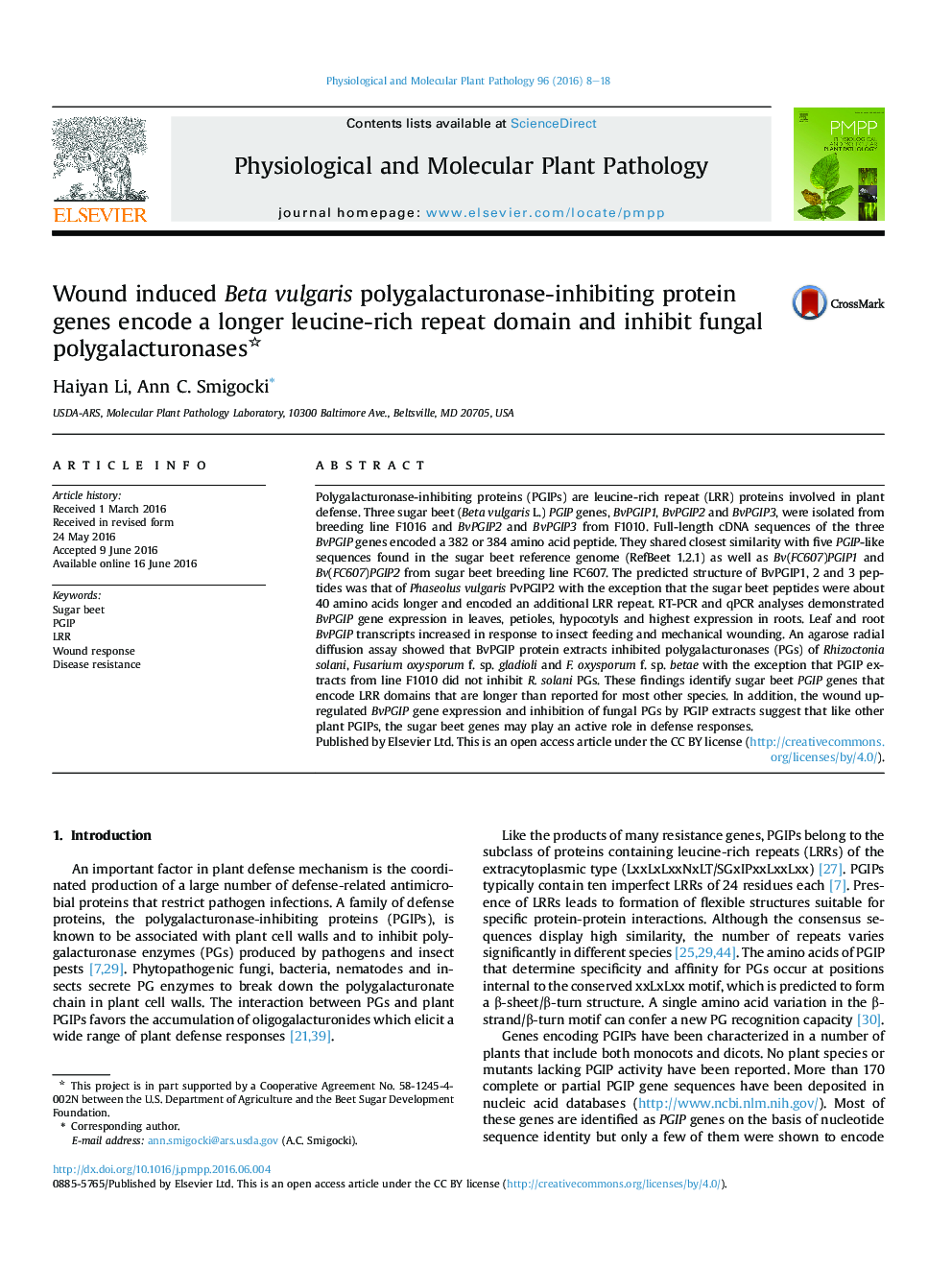| کد مقاله | کد نشریه | سال انتشار | مقاله انگلیسی | نسخه تمام متن |
|---|---|---|---|---|
| 5921029 | 1570843 | 2016 | 11 صفحه PDF | دانلود رایگان |
عنوان انگلیسی مقاله ISI
Wound induced Beta vulgaris polygalacturonase-inhibiting protein genes encode a longer leucine-rich repeat domain and inhibit fungal polygalacturonases
دانلود مقاله + سفارش ترجمه
دانلود مقاله ISI انگلیسی
رایگان برای ایرانیان
کلمات کلیدی
موضوعات مرتبط
علوم زیستی و بیوفناوری
علوم کشاورزی و بیولوژیک
دانش گیاه شناسی
پیش نمایش صفحه اول مقاله

چکیده انگلیسی
Polygalacturonase-inhibiting proteins (PGIPs) are leucine-rich repeat (LRR) proteins involved in plant defense. Three sugar beet (Beta vulgaris L.) PGIP genes, BvPGIP1, BvPGIP2 and BvPGIP3, were isolated from breeding line F1016 and BvPGIP2 and BvPGIP3 from F1010. Full-length cDNA sequences of the three BvPGIP genes encoded a 382 or 384 amino acid peptide. They shared closest similarity with five PGIP-like sequences found in the sugar beet reference genome (RefBeet 1.2.1) as well as Bv(FC607)PGIP1 and Bv(FC607)PGIP2 from sugar beet breeding line FC607. The predicted structure of BvPGIP1, 2 and 3 peptides was that of Phaseolus vulgaris PvPGIP2 with the exception that the sugar beet peptides were about 40 amino acids longer and encoded an additional LRR repeat. RT-PCR and qPCR analyses demonstrated BvPGIP gene expression in leaves, petioles, hypocotyls and highest expression in roots. Leaf and root BvPGIP transcripts increased in response to insect feeding and mechanical wounding. An agarose radial diffusion assay showed that BvPGIP protein extracts inhibited polygalacturonases (PGs) of Rhizoctonia solani, Fusarium oxysporum f. sp. gladioli and F. oxysporum f. sp. betae with the exception that PGIP extracts from line F1010 did not inhibit R. solani PGs. These findings identify sugar beet PGIP genes that encode LRR domains that are longer than reported for most other species. In addition, the wound up-regulated BvPGIP gene expression and inhibition of fungal PGs by PGIP extracts suggest that like other plant PGIPs, the sugar beet genes may play an active role in defense responses.
ناشر
Database: Elsevier - ScienceDirect (ساینس دایرکت)
Journal: Physiological and Molecular Plant Pathology - Volume 96, December 2016, Pages 8-18
Journal: Physiological and Molecular Plant Pathology - Volume 96, December 2016, Pages 8-18
نویسندگان
Haiyan Li, Ann C. Smigocki,